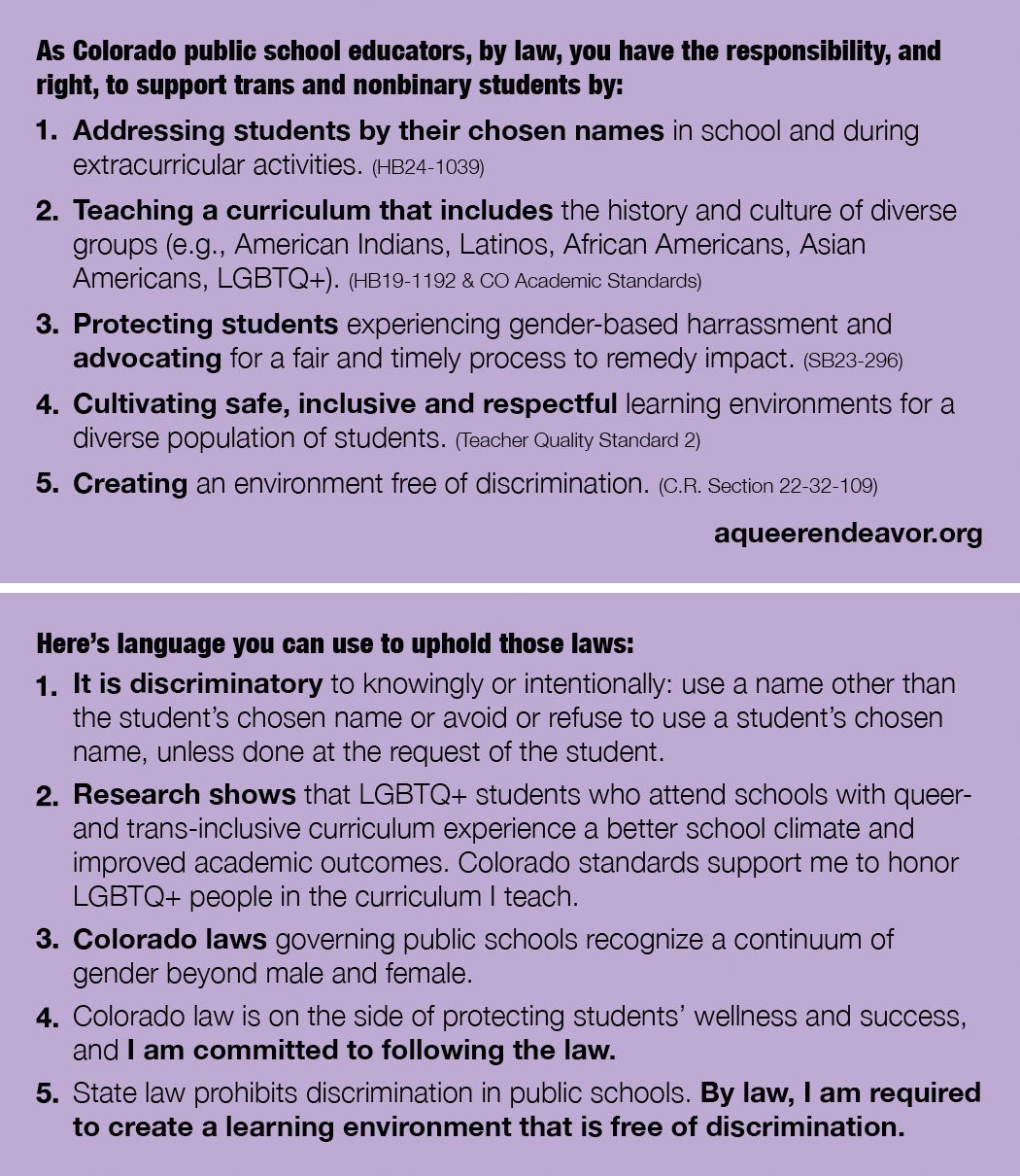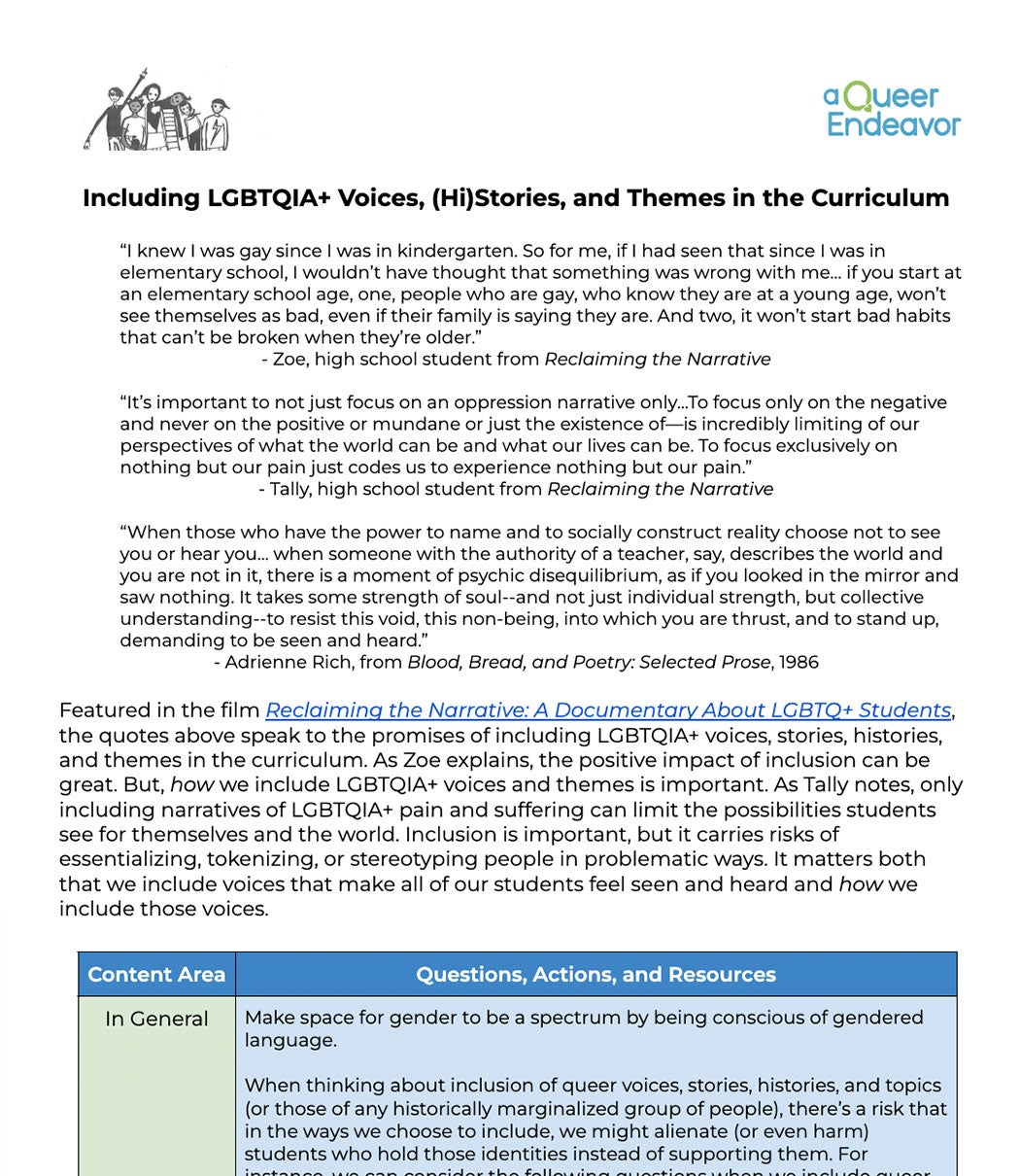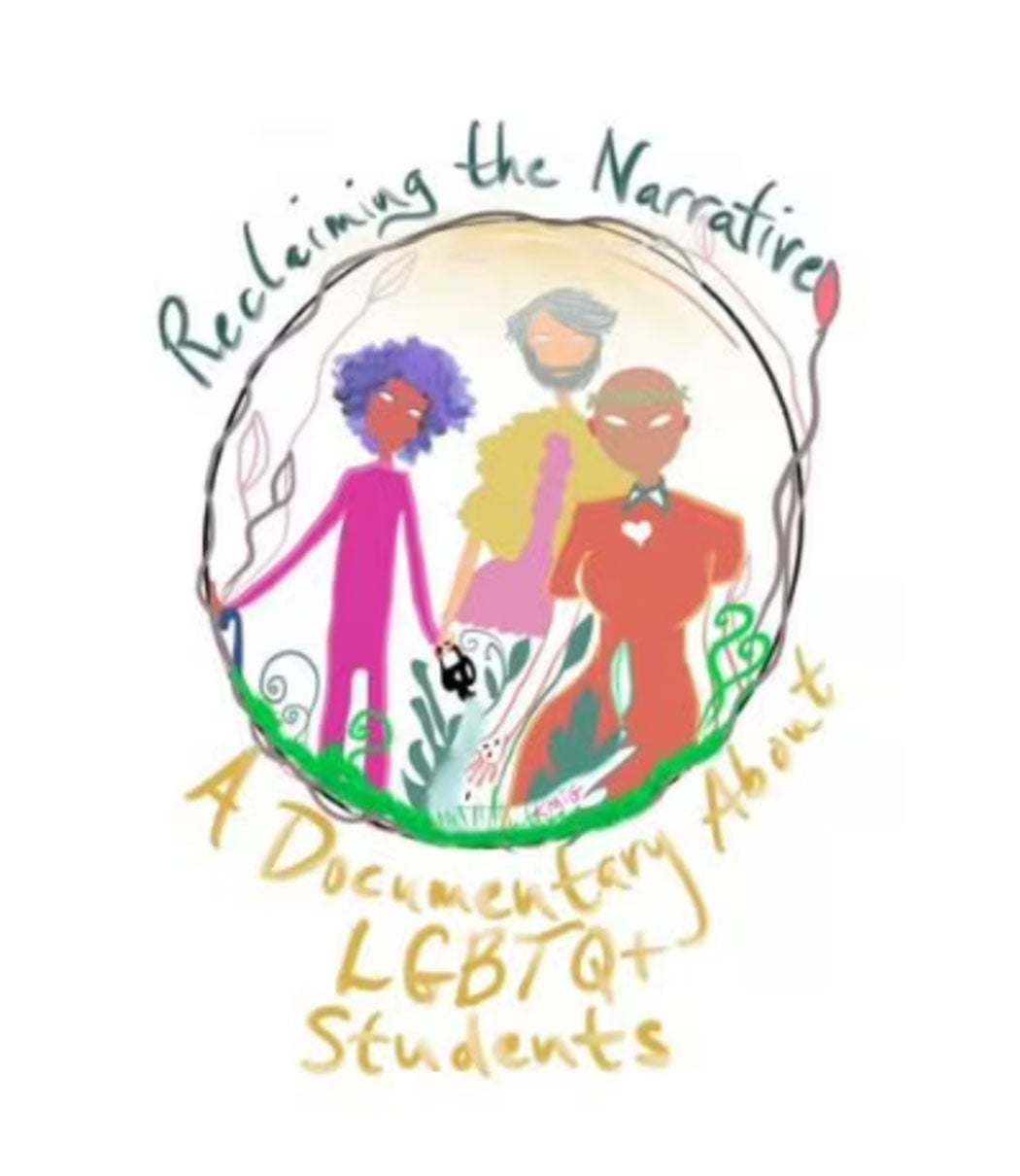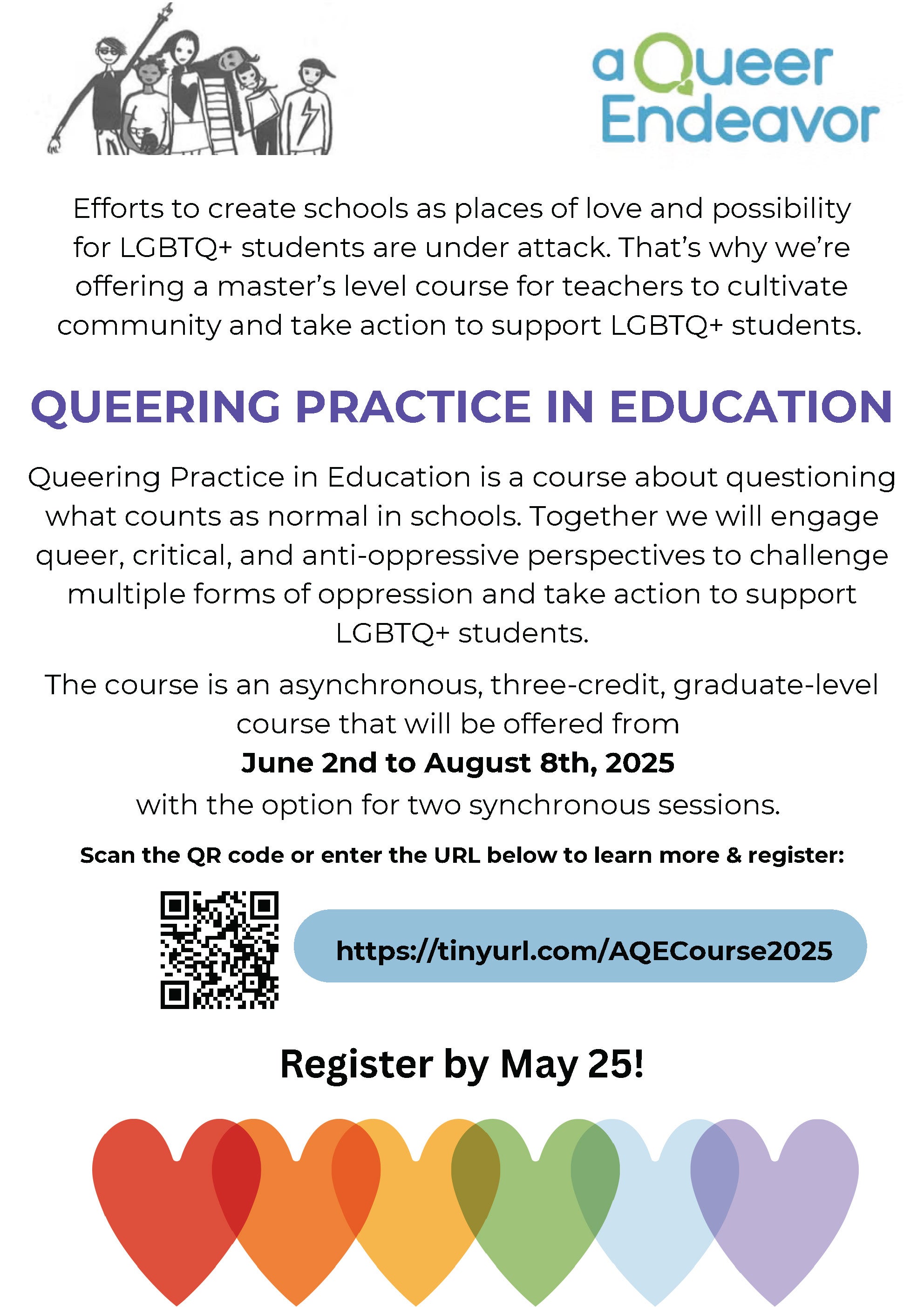A Queer Endeavor's Spring 2025 Newsletter
Dearest Community,
So much has happened since we last wrote to you. On purpose, we will not repeat the sweeping executive orders that have targeted so many in our communities–namely, immigrants and mixed-status folks and trans folks. You are feeling the impacts of those orders in different ways, and we recognize that for educators, the emotional impact is real. We hold with great care and tenderness what you might be feeling as you wonder about your rights and safety to align your practice with principles of diversity, equity, inclusion, and justice.
In light of the exigencies of the present moment, we are reminded of the transformative power of collectivity, particularly during times that challenge us to take action. After the 2016 election, A Queer Endeavor held a community event in the spirit of collective liberation and finding hope, comfort, and healing in the act of coming together. Now, in 2025, we are longing to cultivate, participate in, and nourish such spaces again. As an organization, we are committed to letting that desire shape our work in 2025-26. Stay tuned for announcements about the community-centered event(s) we organize and invite you to be part of.
We are also inspired by Indigenous feminist scholar and educator Eve Tuck’s perspective on taking action in difficult times as an exercise in imagining possibilities. She insists that “we don’t need to let the enormity of change needed (or the enormity of the need for change) paralyze us… It is not so much the size of the steps, but the possibilities they bring into view.” Breathing in that guidance supports us to meet the present moment, to start where we are, and to ask, what’s possible? Toward that end, we frame this newsletter as an inquiry into possibility. Specifically, we ask:
- As educators, school leaders, and youth-serving adults, what small, meaningful changes can we make in our classrooms, schools, and communities, despite current constraints?
- What might those action steps make possible? In other words, what possibilities, new visions, and ways of being do they bring into view? How does it feel to imagine those possibilities?
- What changes – in practice and/or in mind, body, and spirit– emerge when we commit ourselves to taking small steps of possibility and such practices accumulate over time?
With that in mind, we ask you, dear community, to come closer. As you read on, can you feel us whisper the question, What’s possible?
With love,
The AQE Team
Launchpads of possibility: policy, practices, and perspectives
Policy
As we consider what’s possible, it is helpful– necessary, even– to first ground ourselves in what’s real. Specifically, at a time when LGBTQ+ youth and communities face growing threats at the federal level and harmful rhetoric in public and political discourse, learning about Colorado’s LGBTQ-inclusive laws and policies is a powerful first step. That’s why we’ve created the Lavender Card, a resource for educators that offers succinct summaries about current laws and policies in the state of Colorado that protect and serve LGBTQ+ youth in Colorado’s schools.
Introducing the Lavender Card
The Lavender Card outlines Colorado laws that protect and affirm the rights of transgender and nonbinary students in P-12 public schools and provides language that educators and youth-serving adults can use to uphold those rights. This resource aims to educate, advocate, and foster action toward democracy, diversity, and justice.
Inspired by and in solidarity with the Immigrant Legal Resource Center’s Red Card, a “Know Your Rights” tool aimed to support undocumented immigrants in the U.S. to assert their constitutional rights, the Lavender Card honors that legacy while aiming to build intersectional solidarity with communities facing ongoing political threats, including undocumented, mixed-status, and LGBTQ+ families and individuals individuals, particularly trans and nonbinary youth.
We invite you to:
- Use and share the Lavender Card widely.
- Deepen your understanding of LGBTQ+ folks’ lived experiences in your communities.
- Stand and act in solidarity with those most impacted by the current political climate. The back of the Cards and this Talking Points tool are here to help.
- Pair the Lavender Card with Red Cards and other resources for broader advocacy.
Together, let's consider: What’s possible when we actively leverage law and policy to protect and affirm trans and nonbinary youth?
Practices
With anti-LGBTQ+ rhetoric and fear-mongering so prevalent, it can sometimes be intimidating to think about how to bring a queer lens to our classroom practices, especially in contexts that are restrictive.
Developed from 11 years of partnership work with educators, A Queer Endeavor designed a framework of four queer teaching practices to support educators navigate this moment.
When we use the word “queer” here, we’re talking about queer as a verb. We’re talking about questioning, challenging, and disrupting what counts as “normal” to advance personal and social transformation with respect to gender and sexuality, but also race, language, ability, body type, and other norms. Focused in this way, a queer lens can be applied to any text in any context.
Bringing this lens means we look beyond inclusion as the goal. Representation absolutely matters. And, questioning who, how, and why we include also matters. The four queer teaching practices seek to support educators in this work.
To give educators concrete footholds for incorporating queer pedagogy, we generated snapshots to illustrate each practice. Click on the links below for an overview of each one and possibilities for implementation in different contexts.
Introduction: What is Queering?
Practice 1: Include
Practice 2: Questioning What’s Normal
Practice 3: Implicating the Self
Practice 4: Create Conditions to Feel Discomfort & Joy
Video Model: Incorporating Queer Teaching Practices in the Design of Queer(ed) Questions
You can always find more resources for educators on our website, and send us a note if there’s something you’d like to see!
Perspectives
Learning about policy and implementing practices are important steps, but they are just the beginning. Working to make schools more equitable requires a collective effort and is a lifelong project. The perspectives we take up guide us in how we think about the world, how we shape and hold onto and live out our commitments. We hope you’ll find possibility and inspiration in the perspectives below, which have helped us navigate this current moment.
Considering the importance of implicating the self
Possibilities are endless when taking time to reflect on what these policies mean for you personally and professionally, and to consider how your actions can further align with commitments to access to equitable education for all students. This knowledge calls us to implicate ourselves, to move beyond awareness into action, even when that action feels difficult or uncertain. Start by looking inward and finding one way– small or large– to align your actions with your beliefs. This Taking Stock tool is here to help.
Consider asking: What do these policies mean for me and my role(s)? How can I show up and/or act in ways that reflect my values and commitments?
Considering the importance of stories and lived experiences
Tune into stories and experiences of those in our communities who are most vulnerable right now and are leading the way for navigating these times with grace, strength, and fortitude. Check out our newest film, developed in collaboration with LGBTQ+ youth in Colorado, Reclaiming the Narrative. Witness their truths. Share their voices. Engage in dialogue.
Considering reality
Staying grounded in facts and actual language in policies can be a steadying force amid confusion and fear. Remaining informed about local, state, and federal laws and guidance, including education policy, allows us to cut through the noise and stay grounded in the tools we do have to support equity. Use this knowledge to educate, resist, and protect. The Lavender Cards are here to help.
Cultivate community
Remember: you’re not doing this alone. There are others in your school, your neighborhood, your networks, and around the globe who care deeply, too. This is a shared struggle– and this is a shared opportunity, too. How can we call others in, expand our circles of care, and journey ahead together? Reach out, invite people in, start conversations, and build community. Together, we can forge paths forward with hope, courage, and solidarity.
Learn with AQE this Summer!
Asynchronous course offering
Want to learn more about queering teaching practices? Join us this summer to develop teaching practices that center loving, listening to, and learning alongside our students. Our Queer(ing) Practice in Education course will be offered online, asynchronously through CU Boulder from June 2 to August 8.
Ready to enroll?
Scan the QR code or visit the link in the flyer!
Interested?
Sign up here and we’ll be in touch with more information!
Can’t take the course but want to support?
Donate to fund a teacher to take the course here!





